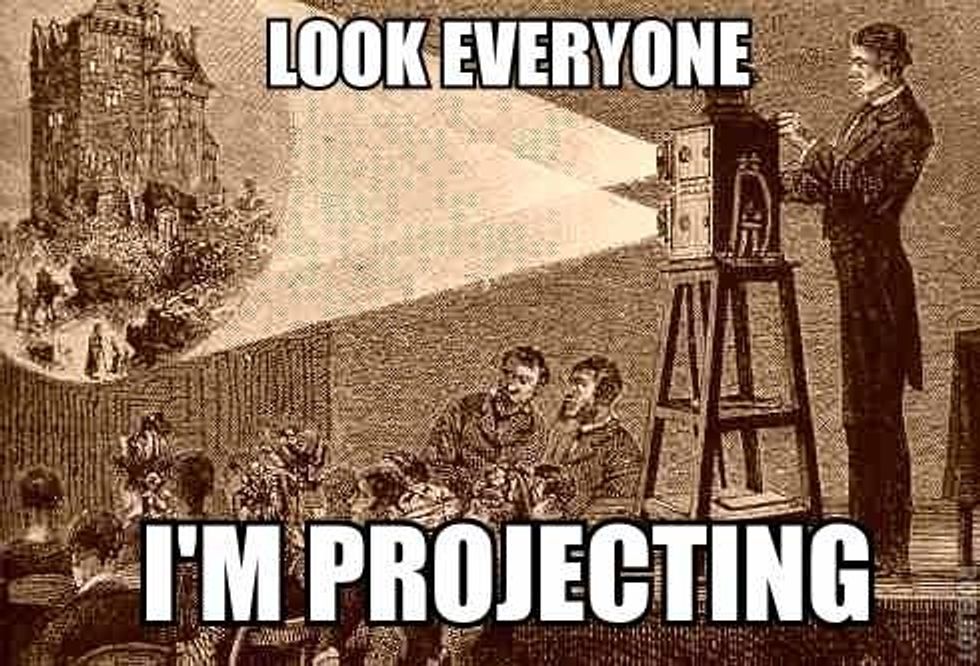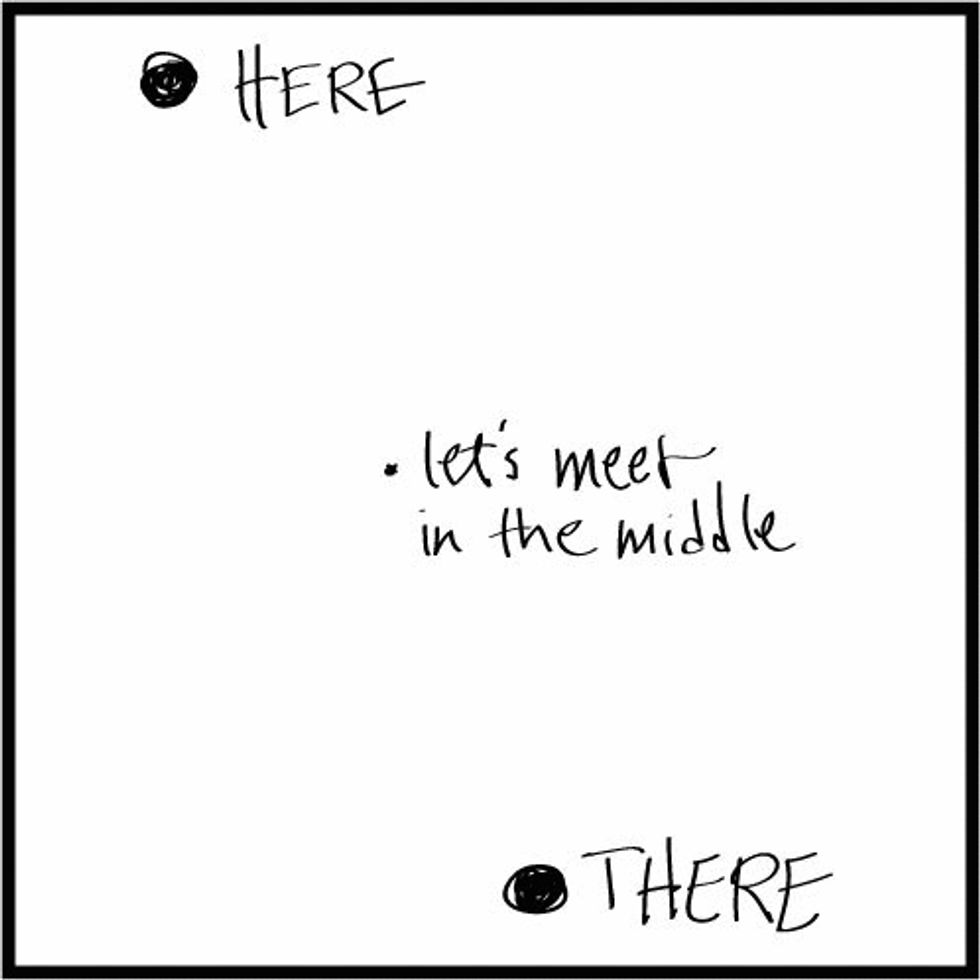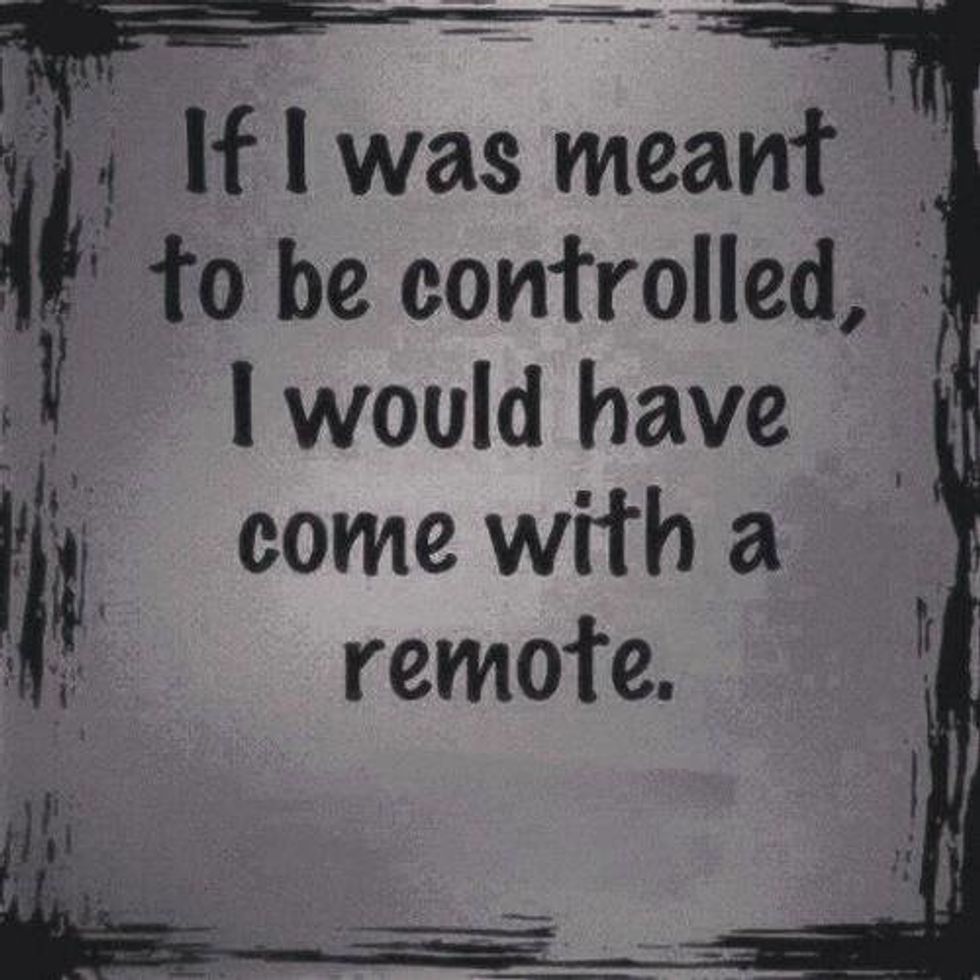I'm a classic 2 on the Enneagram—which means I'm incredibly susceptible to being manipulated by toxic, abusive, selfish, or struggling people. After a recent encounter with a friend where I struggled to determine if they were just being thoughtless (we'll remain friends) or actually being actively manipulative (I need to proceed with caution), my lovely sister recommended I make a list of behaviors classically used by manipulative people as a sounding board.
You might be prone to being manipulated if...

https://www.bing.com/images/search?view=detailV2&ccid=el8jzOWa&id=608161002B5E1A348F59F99109BA0
One of the best qualities of being a 2 (OR having a big heart, or being a romantic, or giving people the benefit of the doubt, or just being optimistic) is also the worst struggle: our big hearts, our drive to please people, and our desire to be needed make us highly susceptible to manipulation.
If you crave appreciation and affirmation, are driven to be close to others, and are generous and warm with your willingness to put others ahead of yourselves, you can easily slip into the shadow side of yourself by being manipulated, gaslighted, or abused.
Big hearted people

https://www.bing.com/images/search?view=detailV2&ccid=A99fI7CW&id=889D2A1D927519D1629729F7732
Having a big heart is amazing, but having a big heart and letting yourself get all walked over and twisted around is no more noble than having a selfish heart and a firm grasp of your own boundaries. People with big hearts (and I'm no exception) often feel like they are more noble and loving than others because they're willing to be longsuffering: to be hurt by someone and then forgive them, over and over again.
The highest path is to both have a big heart and firm boundaries: and that means when someone is exhibiting manipulative behavior, you walk away. This doesn't need to be judgemental or make them evil or mean people—it just means they are not healthy for you.
You make their excuses up for them.

https://www.bing.com/images/search?view=detailV2&ccid=w%2fgPkqN8&id=8ADD44C48672E
This black-and-white walking-away shit is hard for people with big hearts who give the benefit of the doubt because there's always so many reasons we can give to justify someone's behavior. "Oh they had a bad childhood, oh they were just stressed, oh maybe they're not always this way, oh they're trying to be better!" ("I'm trying to be better" is a HUGE weak spot for bighearted people. At some point, trying isn't enough! Channel your inner Yoda!)
Sometimes manipulative and normal behaviors look the same, but the motivation is different. There's a huge difference between pulling a twelve-hour shift at work and not returning a text, to deliberately giving someone the silent treatment—or a person who struggles with depressive episodes versus a person who is just selfish.
It's also hard because manipulation isn't always bad. The positive side of manipulation is persuasion, and sometimes we can try to persuade people to do things that are very good for them.
The balance, then, is to understand manipulative behavior—when someone consistently puts themselves first, regardless of the consequence to you—and differentiate this from an occasional manipulative action from someone whose track record is thoughtful and selfless. Here are 7 ways you can be manipulated.
1. They gaslight.

https://www.bing.com/images/search?view=detailV2&ccid=MlKllyMc&id=5A0C64D2ED169893A848400299EBB5
If someone tries to persuade you that your feelings or experiences aren't real, that's manipulative. Of course, it's on you to present your own self in a kind way: if you yell at someone, "You NEVER take the trash out and you ALWAYS ignore me when I ask you to do it!", then it might not be manipulative behavior but merely them reinforcing their own boundaries if they respond, "I know you're angry, but I took the trash out last week, and when you asked me today I said I would do it later."
In examining manipulative behavior, make sure you're not being the manipulative one too.
But as long as you're approaching conflict with kindness (using "I" focused sentiments rather than "you" focused sentiments), then someone should not be making you question your own feelings and experiences. A loving person will acknowledge how you're feeling, regardless if they think it's proportional to the situation.
2. Common manipulative phrases.

https://www.bing.com/images/search?view=detailV2&ccid=3h3Pmeoy&id=0D776174A1DC66F21DD2C250F
Common phrases a manipulative person might use include: "you're being too sensitive or emotional," "you didn't understand me," "I just don't want any drama," or "if/then" statements, such as, "if you don't____, then I'll have to ____."
When you're debating if someone's treating you in a manipulative way but struggling to write them off, imagine that your good friend comes to you and tells you all the ways this person has treated them. What would you advise your friend to do? Sometimes it is easier for us to hear the advice we'd give to a friend than to say that same advice to ourselves.
3. They neg.

Ahh, negging. Backhanded compliments or low-grade insults designed to undermine a person's confidence and impel them to seek the approval of the negger. "Wow, you're hot, for a chubby girl," "is your hair real?", "you know, if you wore a bit more makeup, you could be really pretty," "I'm surprised you're still single," "you are actually pretty smart!", and the classic, "you know, if you smiled more…"
If someone's negging you, they are either consciously or unconsciously using deliberately manipulative behavior to get your attention or get you to need their attention or approval. If they're doing it consciously: run away. If they're doing it unconsciously: even worse.
4. They project.

Projecting is very similar to assigning or shifting blame. It's a defense mechanism where a person refuses to take responsibility for their own behavior, impulses, or desires by denying their existence and instead insisting they exist in someone else. For example, a person who feels desire toward other people might accuse you of wanting to cheat; a person who has anger problems accuses you of being angry at them; a person who is thinking about breaking up with you might accuse you of acting like you want to end the relationship. A projector tries to tell you how you feel, how you are acting, how you are. If someone is constantly telling you the negative motives behind your own behavior, that's projection.
5. They shift blame.
 Shifting the blame 101.
Shifting the blame 101.When a person assigns blame rather than accepting responsibility for their own actions, they are diverting responsibility. A manipulative person might blame their childhood, an ex, or you: "Normally I don't react like that, but you just made me so angry!" "I fell in love once and she broke my heart. It's so hard for me to trust again. That's why I'm so jealous of you." A child looking at the shattered vase and saying, "It broke," rather than, "I broke it," is a classic example of assigning blame rather than claiming ownership over actions.
Let's be real: everyone's had a shitty childhood, or a horrible ex, or a loved one who broke their heart. Some people's stories seem worse than others. But if a person constantly shifts responsibility for their own actions onto others or onto you, that's manipulative behavior.
6. They're only kind when it's easy.

https://www.bing.com/images/search?view=detailV2&ccid=%2fzIc%2bw6K&id=7E05D507BA21FAC70AABA62FC
If everything's amazing as long as things are going their way, but then everything becomes awful once you stand up to them--or if they need something from you and if they don't get it, they're awful--or they are nice to you because they want to get something from you--that's manipulation.Everyone wants their own way, and that's fine. But relationships become manipulative when a person is willing to entirely disregard you in order to get what they want.
They don't even have to intend to hurt you: manipulative people aren't (always) cruel or evil. But a lack of harmful intent isn't always enough. Sometimes your intent needs to be to not harm someone. And lastly (and most important), your intent needs to be to actually be kind to someone.
I had a relationship with a person, Ben*, in which it took me months to see how manipulative he was because he was so kind and thoughtful to me. He texted me once and asked how my day was, and I responded with, "Today was rough, but hopefully it'll get better! How about you?", and he called me to ask me what was wrong. So thoughtful, it seemed! But the first time I asked something of him that he didn't want to do (more below), he refused to do it utterly.
Ben was only kind and thoughtful when he wanted to be—but when I needed something and he didn't feel like it, he wouldn't do it. Now, observing personal boundaries is important. But if this person won't sacrifice what they want for something you need, or won't try to find a way for you both to be getting what you need, they may be manipulative.
*name changed
7. They don't meet you halfway.

https://www.pinterest.com/pin/AfSyW5da52nPQk1FoNF6A1aZrZNZejCmN3DlUusc2Iof4NnLIDAHETc/
If you and a person have a conflict and you demand things go your way, then you're the manipulative one. But if you're willing to compromise and they're not, they may be.
In the above example, it became clear when Ben and I had a fight, that his conflict style was to withdraw whereas mine is to discuss. I found this out by us having a fight and him going radio silent for two days. When we next talked, I offered that when he needed space, he could say what he needed ("I need space"), suggest a specific amount of time he needed ("for the rest of the night"), and let me know when he could give me what I needed ("We can talk about this tomorrow after work"). What I needed was to discuss a conflict much sooner than Ben did—waiting a day or two to address a conflict causes me a lot of anxiety—so offering that he get space first before I got what I needed felt like a generous and acceptable compromise.
Ben, however, not only refused to give me an assurance that we would discuss a conflict soon--he refused to give me an assurance that it would be discussed at all ("I might want space for two minutes, or two days, or two weeks"). When I asked him to communicate to me when he needed space, he refused, saying I should just "figure it out" by his refusal to text or call back, or his change in tone. When I said that this all would be extremely anxiety-provoking for me, so I would want him to at least give me a relational affirmation ("I don't know how much space I'll need, but I'll let you know, and we'll figure this out, and I love you"), he refused to give me any assurances and even said that if he decided to take space—regardless of if he had communicated it to me—if I sent him a text or tried to talk to him in any manner, he would take even more space and give me the silent treatment till I backed away and allowed him to talk to me on his terms.
Being kind AND smart.

Being loving toward others is something we should all strive for. Unfortunately, when another person doesn't have the same intent in mind, it can entangle you in a manipulative, toxic, or abusive relationship. Loving others also means being loving toward our own selves--and sometimes that includes walking away from manipulative people.
There are many more ways that people can try to selfishly manipulate you. Hopefully this list is a good starting point to reexamine the relationships in your life and make sure you're investing in relationships that are full of love, warmth, and care for the other person--not ones that are full of manipulation, selfishness, and abuse.

















